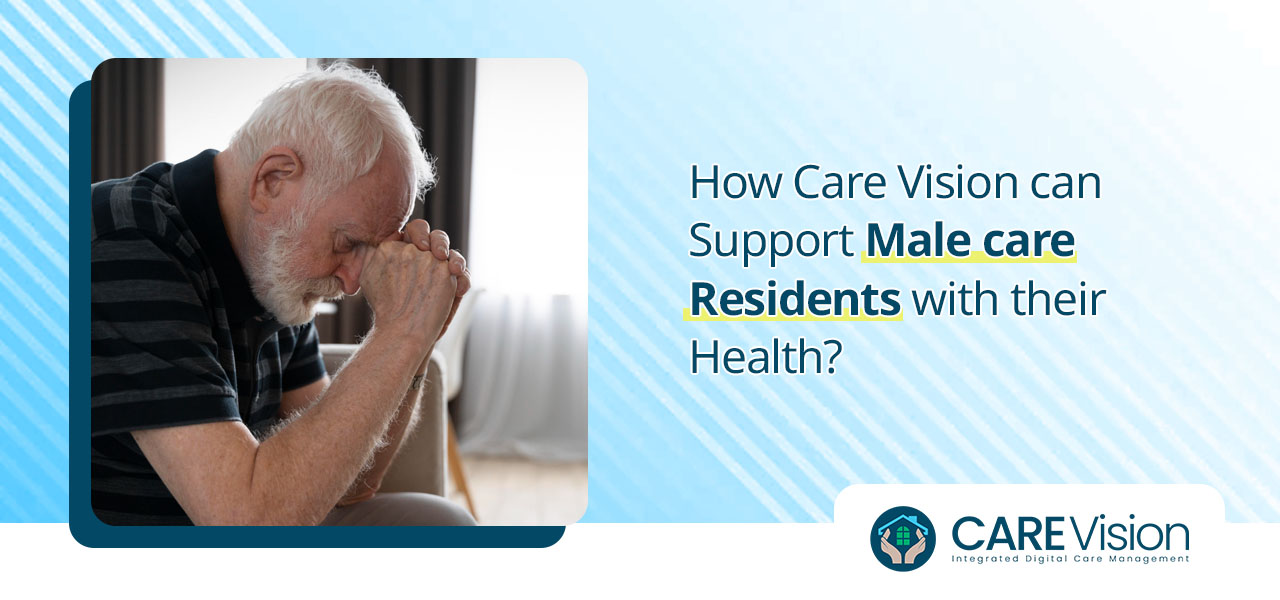Today’s understanding of mental health issues and ways to support them is better than ever before. However, it is not always easy for care professionals to pick up every single symptom of depression and poor mental health in their residents. Many people try to hide their feelings – older people in particular might find it harder to open up about their feelings or ask for help. Others may simply believe that it is a normal part of growing older, or feeling more vulnerable due to worsening physical health.
When depression strikes
Depression can often accompany feelings of loneliness or isolation. Even in a busy care home, some residents can still feel lonely, especially if they don’t get many visitors or interaction with friends or family. Depression can also accompany physical conditions, such as Parkinson’s disease, stroke, cancer, multiple sclerosis, dementia and lupus. It can also develop from previous feelings of sadness, frustration and anger, especially if these are not addressed and supported to help the person feel better about themselves and their emotions.
Signs of depression
Some signs that a resident might be suffering from depression include feeling sad or down, frequent aches and pains, tiredness or odd sleeping patterns, loss of appetite, loss of self-esteem, speech or memory problems (that come on far quicker than if dementia is suspected), slack personal care or hygiene and suicidal thoughts or comments. If you spot any of these, especially if there is more than one sign manifesting itself, it could be time to increase mental health support for the person affected.
Socialising and fulfilment
A key way to help avoid loneliness and associated depression is to ensure that care home residents have a fulfilled life with plenty of stimulation and companionship. This can be done in a number of ways. Encouraging friends and family to visit – making it easy for them to sign in and out with an electronic visitors book – is a great start. Plan family-friendly events for them to come along to and invite local groups to join you for added entertainment, such as local choirs or music groups.
Keep communications with family and friends open too, helping residents use phones and computers and maintaining regular contact yourself via a digital family and friends communications tool. Finally, be there yourself for residents to talk to and spend time with. Use Care Vision software to automate time-consuming admin and ‘paperwork’ tasks to free yourself and your team members up for this vital part of the carer role.
Healthy habits
Depression can often accompany poor physical health, so make sure that your residents are supported to live as healthily as possible. Plan nutritious, varied meals and provide healthy snacks and drinks to ensure that residents are eating and drinking adequately. Avoid too many sugary snacks, as the ‘high’ moods these can often provide tend to be very short lived and can cause mood swings and emotional ‘crashes’ later on. Likewise, alcohol can exacerbate low feelings for many people, so should be offered in moderation. Use digital weight loss and fluid intake monitoring tools to stay on top of this aspect of their care.
Plan regular physiotherapy sessions for people recovering from accidents or illnesses affecting their physical mobility. Invite a counsellor to pay regular visits for people to talk to about their feelings and any worries they may be having. It can often be the case that earlier interventions based around talking therapies and other forms of treatment can help prevent feelings of sadness, isolation or worry from turning into fully-fledged depression.
Out and about
Depression can stop people from feeling motivated to leave the comfort and security of their home. Support physical health by facilitating walks in the grounds, or around the local area for those who are able and wish to get out and about. Plan interesting day trips to local attractions and events to help give people new surroundings to explore and things to talk about. Hobbies such as gardening, cooking board games, book clubs etc. can also provide common points of interest for people craving companionship and mental stimulation. These can be planned and carried out with the help of digital care management software to ensure correct staffing levels, external bookings as required and budgeting for equipment and supplies.





